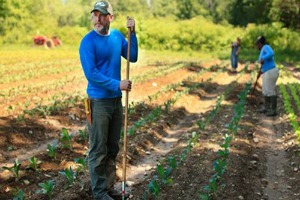By Rebecca Maxwell
When you think about prepping, are there specific images that come to mind? You might envision stores of food and supplies stashed away in someone’s basement or spare bedroom. You might even think about those who plunder stores in the wake of an oncoming storm. Preppers themselves might come across as a little bizarre to you.
In actuality, prepping is a simple concept. The ultimate goal behind prepping is to maintain a certain standard of living to provide protection against disaster. Prepping is a way to create a hedge not against massive crises, although they could happen, but more realistic calamities like the loss of a job, chronic illness, and accidents.
Preppers are just ordinary people who have agreed to live by certain principles, and a few of these principles are:
Thrift and Frugality – Prepping seeks to cut down on waste by promoting practices that cause us to live within our means. Thriftiness means that we look for ways to be more efficient with our time and money. That might be skipping the expensive restaurant to create healthy and cheaper meals at home. Frugality involves being prudent with how we distribute our money, keeping in mind that there might not be a next paycheck coming in.
Independence – Being independent can come in many different forms. It might mean getting out of debt and gaining better control of your money. Independence might be freedom from addictions including those to alcohol, drugs, and prescription medications. Still, it might look like freedom from the belief that you need more stuff to be a better person.
Industriousness – The principle of industriousness says that a person can always be looking for opportunities to better themselves by learning, exploring, and doing. Success always requires hard work but getting up and trying is preferable to sitting idly by, even if that means potentially failing. People who are industrious know that the only way to accomplish something is to work at it.
Self-Reliance – Self-reliance is the ability to provide what one needs as the result of a developed skill or putting away necessary resources for later use. These needed items are things that we typically spend money for, and self-reliance could mean learning how to garden, repair clothes, fix a vehicle, and much more. It means enjoying the satisfaction of working with your own two hands to produce goods and services instead of paying more money for them.
Storing Up for the Future – Preppers believe that a natural consequence of the other principles is having a ready supply of those things we cannot live without. These items include food, water, medical supplies, clothing, light, and heat. How much a prepper stores is ultimately up to him or her but the general guideline is a year’s supply of essentials. This amount creates a buffer against hard times but also allows one to share with others in need.
Rebecca Maxwell is a freelance writer who has written for a variety of websites including GISLouge.com and AKA Mom Magazine. She first started out as a history blogger at My Adventures in History, and her articles have been published in Idaho Magazine, Idaho Family Magazine, and Christian Living Magazine. Rebecca loves all kinds of outdoor activities and is an avid runner and triathlete.

